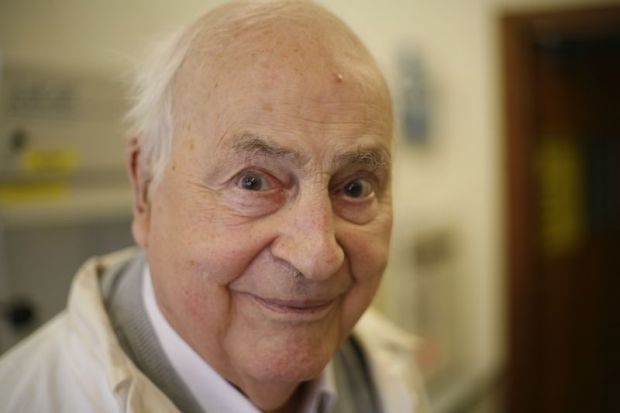A medical researcher whose discoveries helped to save millions of lives has died.
Denis Mitchison was born in Oxford in September 1919. His maternal grandfather was a professor of physiology, and his uncle was the distinguished geneticist J. B. S. Haldane – both major scientists who taught him early how to use a microscope and the crucial importance of statistical rigour.
At the age of 13, Professor Mitchison was sent to Abbotsholme, a boarding school in Staffordshire, where, according to his son’s funerary address, “he learned how to shear a sheep, excelled in carpentry and was allowed to avoid school prayers if he read Homer instead”. He went on to a degree in natural sciences at Trinity College, Cambridge (1939), then switched to medicine and, in 1946, secured a position at the Brompton Hospital in London working on the first randomised controlled clinical trial, comparing the effectiveness of the drug streptomycin and traditional bed rest in treating tuberculosis.
The results proved hugely significant in combating what had for centuries been perhaps the world’s worst killer disease, and Professor Mitchison went on to carry out similar projects in East Africa, India and Hong Kong. He helped to show that treatment at home could be just as effective as treatment in expensive sanatoriums and that a standard short course of drugs could reduce treatment times from 24 to six months.
Back in London from 1956, Professor Mitchison headed a new unit on drug resistance in tuberculosis at the Royal Postgraduate Medical School in Hammersmith Hospital, where he was promoted to professor of bacteriology in 1968. Despite formally retiring in 1985, he energetically continued his research there and then at St George’s, University of London (1994-2015) – although he did reveal to an interviewer that, at the age of 90, he had recently decided to take Mondays off.
In the 20th century, said Professor Mitchison’s former PhD student and collaborator Amina Jindani, honorary senior lecturer at St George’s Institute for Infection and Immunity, “he did more to save lives than almost anyone I can think of…As a microbiologist, he ranked among the best.” His pioneering randomised controlled clinical trial “remains the gold standard” to this day.
Professor Mitchison was a demanding supervisor, but, Dr Jindani went on, “if he liked an idea, he would push it all the way. I learned a great deal from picking his brain – it was like a huge library which contained a lot more than his published work.”
Professor Mitchison died after a heart attack on 2 July and is survived by a son and a daughter, four grandchildren and two great-grandchildren.




